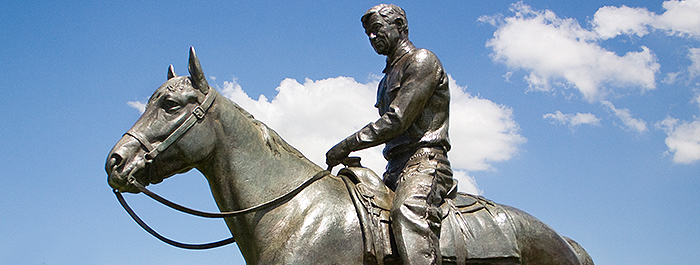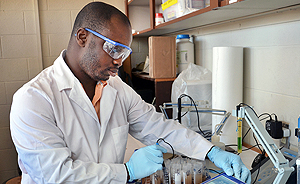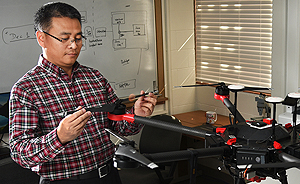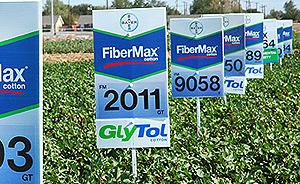Transform Lives and Communities Through Strategic Outreach & Engaged Scholarship
Davis College of Agricultural Sciences & Natural Resources

Goals
- Instill a culture that recognizes outreach and engaged scholarship as an essential component of the college's activity.
- Achieve sustainable outreach and engaged scholarship programs through diverse funding streams and long-term campus community partnerships.
- Enhance recognition of faculty and staff who contribute to outreach and engaged scholarship activities that impact local, state, national, and global communities.
- Increase and strengthen collaborative, mutually beneficial community partnerships that stimulate creativity, innovation, and social and economic development.
Strategies
- Value engaged faculty, staff, and student scholarship.
- Grow college-wide and college-community partnerships.
- Focus on engagement while developing local, state, national, and global external collaborations and funding opportunities.
- Continue the youth development and leadership programs.
- Enhance recognition of faculty and staff who contribute to outreach and engaged scholarship activities that impact local, state, national, and global communities.
- Enhance engaged scholarship in the classroom and through service learning opportunities.
- Encourage collaboration with industry and community partners.
- Expand the Davis College communication footprint through proactive media relations.
Strategic Initiatives
Davis College Water Center – The College of Agricultural Science and Natural Resources (Davis College) Water Center provides a platform for communicating information and opportunities for cooperation focusing on water-resource activities. This platform recognizes the key role of water in sustaining the livelihood of humanity and the health of natural resources in the semiarid region of West Texas and the world. The Davis College Water Center consists of faculty whose research, education, and engagement activities address a wide spectrum of water issues pertaining to agriculture and the environment. Such activities include water use and conservation in crop, soil, and animal sciences, native wildlife and rangeland ecology, horticulture, and urban land use. Water Center activities impact decisions made by landowners, business managers, and policy-makers that lead to sustainable supplies and quality of water.
Texas Alliance for Water Conservation (TAWC) – Unique to the TAWC project is a partnership of area producers, data collection technologies, and collaborating partners that include: industries, universities, and government agencies. The project uses on-farm demonstrations of cropping and livestock systems to compare the production practices, technologies, and systems that can maintain individual farm profitability while improving water use efficiency with a goal of extending the life of the Ogallala Aquifer while maintaining the viability of local farms and communities.
TTU Equestrian Center – "The Center" is the 100-acre home of the Texas Tech Equestrian Team, Horse Judging Team, Ranch Horse Team, Rodeo Team and Therapeutic Riding & Therapy Center. It is the mission of the Texas Tech Equine programs to provide students with educational and leadership opportunities through extensive study, research, and hands on experiences in all aspects of the equine industry. With courses and teams focusing on management, reproduction, horsemanship, evaluation, ranching, rodeo, therapy, and safety; we strive to enrich the future of the equine industry by producing industry leaders.
Texas Tech Therapeutic Riding & Therapy Center – The mission of the Texas Tech Therapeutic Riding and Therapy Center (TTRC) is to provide the highest quality of equine-assisted therapy to individuals with disabilities in the South Plains. Through a collaborative effort of medical and university professionals, the goal of TTRC is to enhance the quality of life of each person participating in hippotherapy and therapeutic riding, and equine-assisted counseling. It is further a mission of the program to train students in all aspects of equine-assisted therapy and to contribute to the scientific knowledge in this area through innovative research.
International Center for Agricultural Competitiveness – The International Center for Agricultural Competitiveness (ICAC) is dedicated to the creation and dissemination of knowledge related to the competitiveness of U.S. and global agriculture. A core focus of the Center is on both domestic and international policy. But, other relevant research areas are in technology adoption, product development, resource management, trade, and international development. The Center promotes graduate education and research as well as undergraduate student experiences to help achieve its mission of a broader understanding of competitiveness.
Thornton Agricultural Finance Institute – The primary mission of the Thornton Agricultural Finance Institute is to focus faculty research on important topics in agricultural finance; providing support for courses and research in agricultural finance and related areas; and assisting with conferences, workshops and other public service functions related to agricultural finance and banking. The Thornton Agricultural Finance Institute co-sponsors the annual Bankers Agricultural Credit Conference. The conference program each year address issues and topics related to agricultural lending, the agricultural economy, legal and regulatory issues, commodity outlook and other issues of interest to rural bankers and lenders. The conference is directed by a board of directors made up of representatives from area banks. The Thornton Agricultural Finance Institute provides a focus for research on important topics in agricultural finance. Agricultural finance is a broad area that relates to many of the research projects within the Department of Agricultural and Applied Economics. The Institute provides resources to assist in several research areas.
Youth Outreach – Davis College provides showmanship clinics, livestock events, judging workshops, and judging contests to youth throughout Texas in 4-H, FFA, and other groups to prepare the next generation of agricultural leaders.
Center for AgriScience Communications at Texas Tech – The Center for Agriscience Communications was established at Texas Tech University in 1990 with the purpose of enhancing the transfer of agricultural information to agricultural and non-agricultural audiences throughout the West Texas region. In 2014, the program expanded to further meet the service related needs of the area. CATT has the following objectives - train agricultural scientists in various forms of communications: interpersonal, media, online, and others; enhance students' communications skills through Picador Creative, a communications service center, and other endeavors; and conduct research in effective science communications, involving message testing, message presentation, risk and crisis communications, and public opinion.
Agricultural Certification at Texas Tech – Teacher Certification is designed for those students who want to teach high school or college-level agriculture. Students take a variety of classes in the Davis College of Agricultural Sciences & Natural Resources as well as in the College of Education. This track provides a hands-on approach to learning to prepare tomorrow's top agriculture teachers.
Davis College Research Centers – Texas Tech is home to a network of farms and other research facilities that support faculty, graduate students, and other members of the scientific community as they focus on crop, animal, and natural resource management in the Texas High Plains. Equipped with cutting edge irrigation systems and other precision production facilities, the farms strive to meet the needs of a growing region, combining research in genetics, agronomics, and resource conservation. The farm system consists of a combined plant and animal science research facility in New Deal, Texas, a 100-acre irrigation research farm and a natural resource facility near campus, and a research and production farm next to the Fiber and Biopolymer Research Institute in East Lubbock.
Communications – The agriculture communications program at Texas Tech acts as a hub that connects departments and programs throughout Davis College, as well as connecting Davis College and Texas Tech with the world. Through print and online versions of The Agriculturalist, students, faculty, and alumni have a voice in modern agriculture and natural resources management.
College of Agricultural Sciences & Natural Resources
| College of Agricultural Sciences & Natural Resources | 2016 | 2017 | 2018 | 2020 Target | 2025 Target |
|---|---|---|---|---|---|
| Number of projects, programs, classes and events provided for/in partnership with the community *RE | 27 | 23 | 106 | 30 | 35 |
| Number of non-TTU attendees and participants in TTU OES activities *RE | 37,009 | 70,336 | 80,776 | 85,000 | 95,000 |
| Number of K-12 students and teachers participating in Davis College OES activities *RE | 6,450 | ICD# | 6,744 | 7,000 | 7,500 |
| Faculty hours | 7,352 | 5,128 | 17,897 | 19,000 | 22,000 |
| Staff hours | 8,592 | 13,134 | 19,159 | 23,000 | 25,000 |
| Student hours | 12,504 | 11,889 | 57,112 | 60,000 | 62,000 |
| Student participants | ICD | ICD | 1,130 | 1,200 | 1,250 |
| Number of external awards received for excellence in outreach and engaged scholarship * | ICD | 61 | 54 | 65 | 70 |
| Number of service learning courses offered * TLPDC | 6 | 8 | 6 | 9 | 12 |
| Number of study abroad courses offered * OIA | 7 | 15 | 20 | 22 | 25 |
| Number of collaborative outreach and engaged partnerships *RE | 17 | 28 | 140 | 30 | 33 |
| Total outreach and engaged scholarship external funding *RE | $2.08M | $1.16M | $5.26M | $2.5M | $3.0M |
#ICD Incomplete Data
* TLPDC – Teaching, Learning, & Professional Development Center
*RE – Raiders Engaged
* OIA – Office of International Affairs; courses offered/courses made
Inside
Introduction

Teaching
Educate & Empower A Diverse Student Body

Research
Enable Innovative Research & Creative Activities

Service/Outreach
Transform Lives & Communities Through Strategic Outreach & Engaged Scholarship

Davis College of Agricultural Sciences & Natural Resources
-
Address
P.O. Box 42123, Lubbock, Texas 79409-2123, Dean’s Office Location: Goddard Building, Room 108 -
Phone
(806)742-2808
